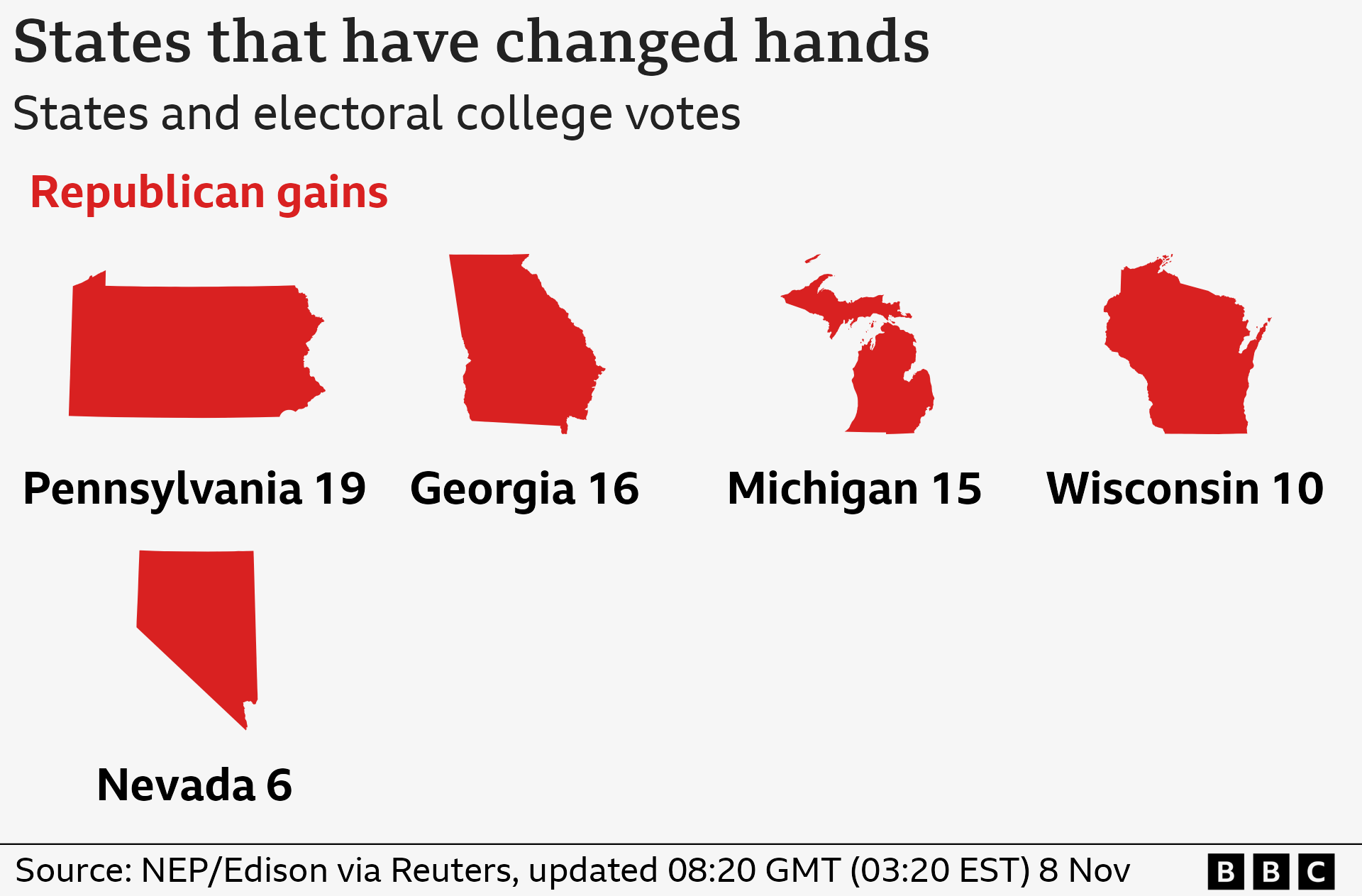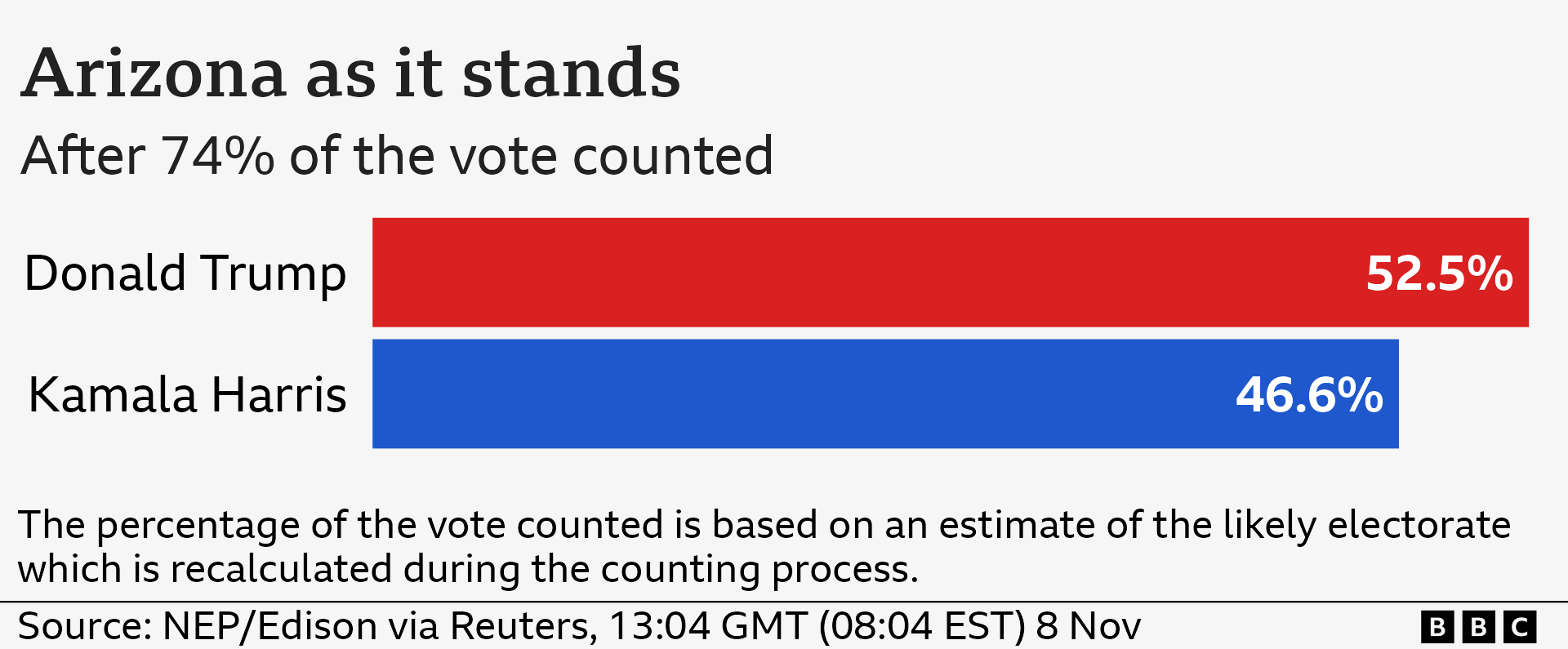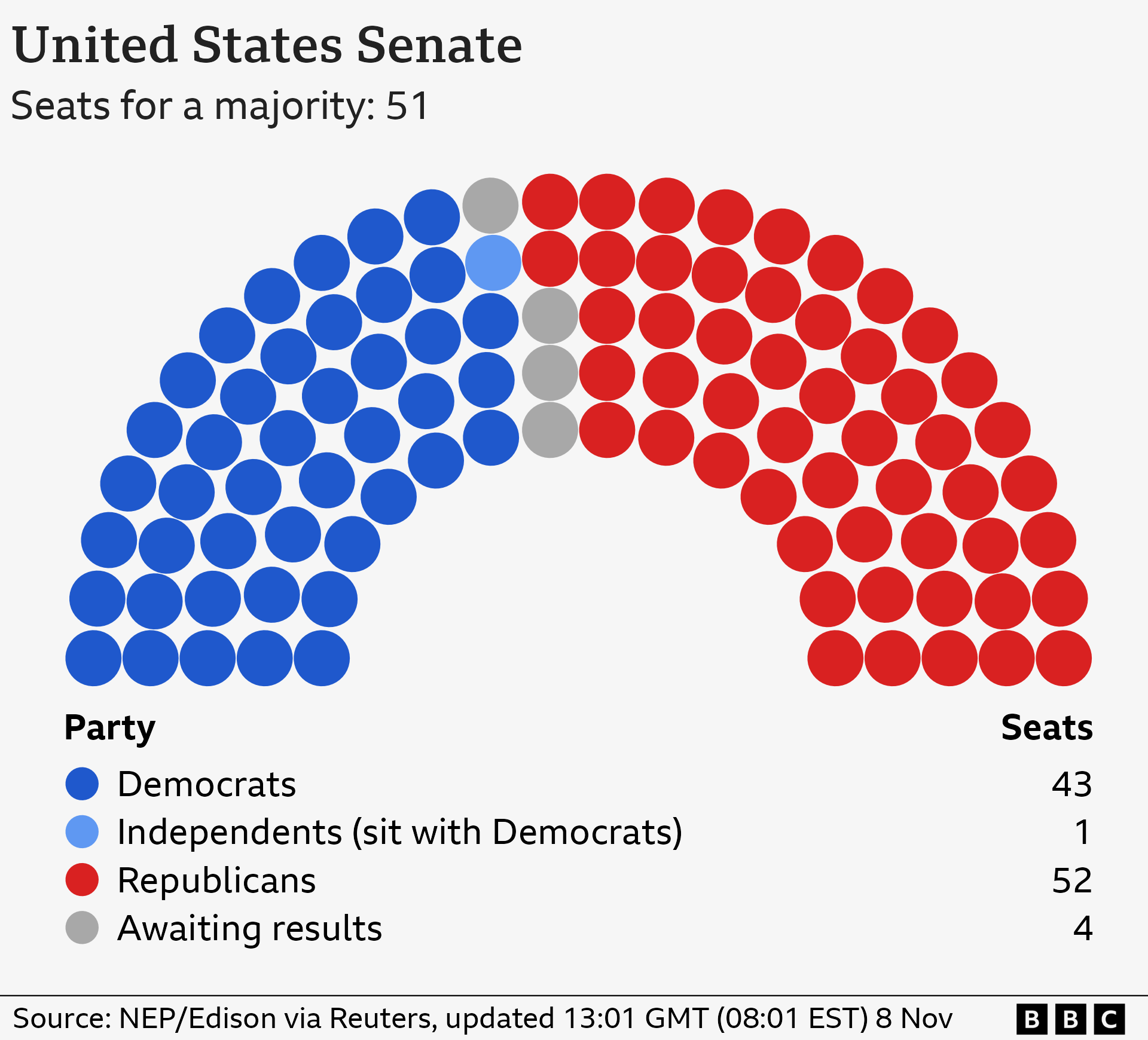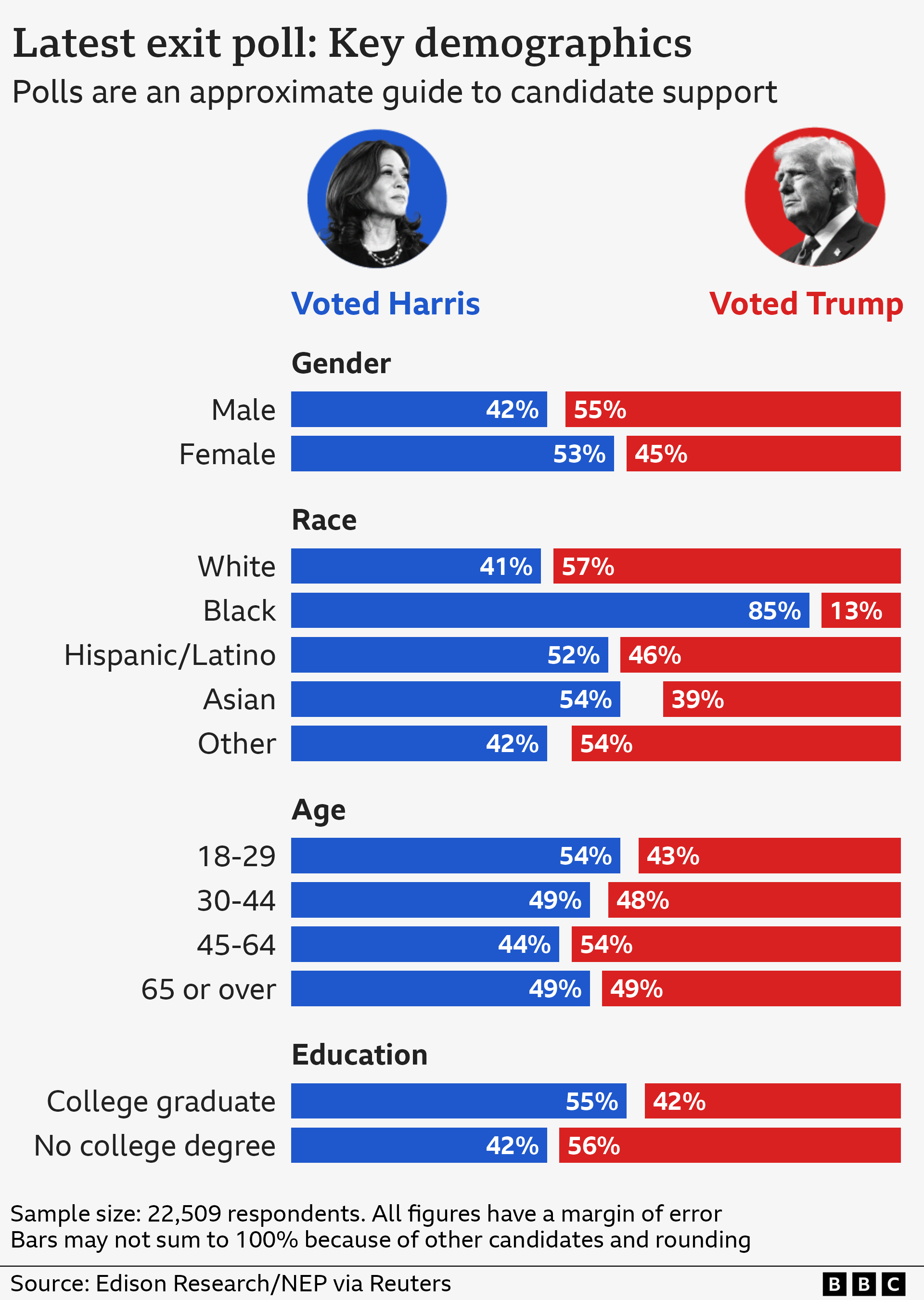How America voted in maps and charts
- Published
Donald Trump has won the race for the presidency of the United States, gaining a historic second term.
He passed the critical threshold of 270 electoral college votes with a win in the state of Wisconsin and has continued to pick up key battleground states.
Meanwhile, the Republicans are also set to take control of the Senate and are ahead in the latest tally of seats in the House of Representatives.
Which states determined the presidency
To win the White House, a candidate needs 270 out of 538 electoral college votes.
Each state is worth a differing number of votes depending on the size of the population. In most cases if a candidate gets the most votes in a state, they win all the electoral college votes for that state.
A few of the most hotly contested battleground states voted for Democratic candidate Joe Biden in 2020, but this year were won by Trump.

With a projected win in Wisconsin, Trump’s victory was secured. He also won the swing states of Nevada, Michigan, North Carolina and Georgia.
Pennsylvania was considered the biggest state to watch out for, with its 19 electoral votes. The state has been projected for Trump.
For the data in the map, click here
The map above shows the voting in each county of Pennsylvania.
Kamala Harris held sway in the state’s major cities of Philadelphia, Pittsburgh and Scranton, but Trump dominated elsewhere.
Crucially, he overturned a 2020 Democratic victory in the north west county of Erie, which has voted for the winning presidential party in every election since 2008.
Meanwhile, Arizona is the last of the seven pre-election battlegrounds and the only state yet to declare a result.

Biden won the state by just 10,000 votes in 2020 but Trump is currently leading Harris with around three-quarters of the vote counted.
Republicans projected to control Senate
There are also elections in both Houses of Congress. With a majority in both chambers, a president’s agenda is typically much easier to push through.
Republicans have already gained control of the Senate, picking up three seats from the Democrats in West Virginia, Montana, and Ohio.
And with the presidency also secured, Republican Vice President-elect JD Vance will sit as president of the upper chamber.

Not all seats have yet been declared in the lower chamber, the House of Representatives.
All 435 seats were up for a vote and several have changed hands.
A party needs 218 seats to control the House, and prior to election day Republicans held it. The final tallies will determine whether they retain that lead.
What exit polls tell us about how people voted
Early results suggest no single group or region drove the win for Donald Trump - instead small gains in many places added up to victory.
The US exit polls help build a picture of how different groups of people have voted across the nation. Exit poll data is updated throughout the night.
The latest numbers suggest that women broke for Harris but perhaps not by the margins her campaign had hoped, at 53% compared with 45% for Trump.

In 2020, the exit polls suggested 57% of women backed Joe Biden, which is broadly similar once the margin of error is taken into account.
Looking at race, Trump led among white voters - the biggest single group - and Harris led with black voters.
She was also ahead with Hispanic voters, but support for Trump has increased more than 10 points among this group compared with 2020.
In particular, Trump has won a significant gain in support from male Latino voters - up 18 points on 2020.
Produced by Wesley Stephenson, Becky Dale, Christine Jeavans, Libby Rogers, Alison Benjamin, Zak Datson, Muskeen Liddar, Erwan Rivault, John Walton, Callum Thomson, Rob England, Phil Leake, Daniel Wainwright, Natalie Sherman

Watch on iPlayer (UK only)
- Attribution